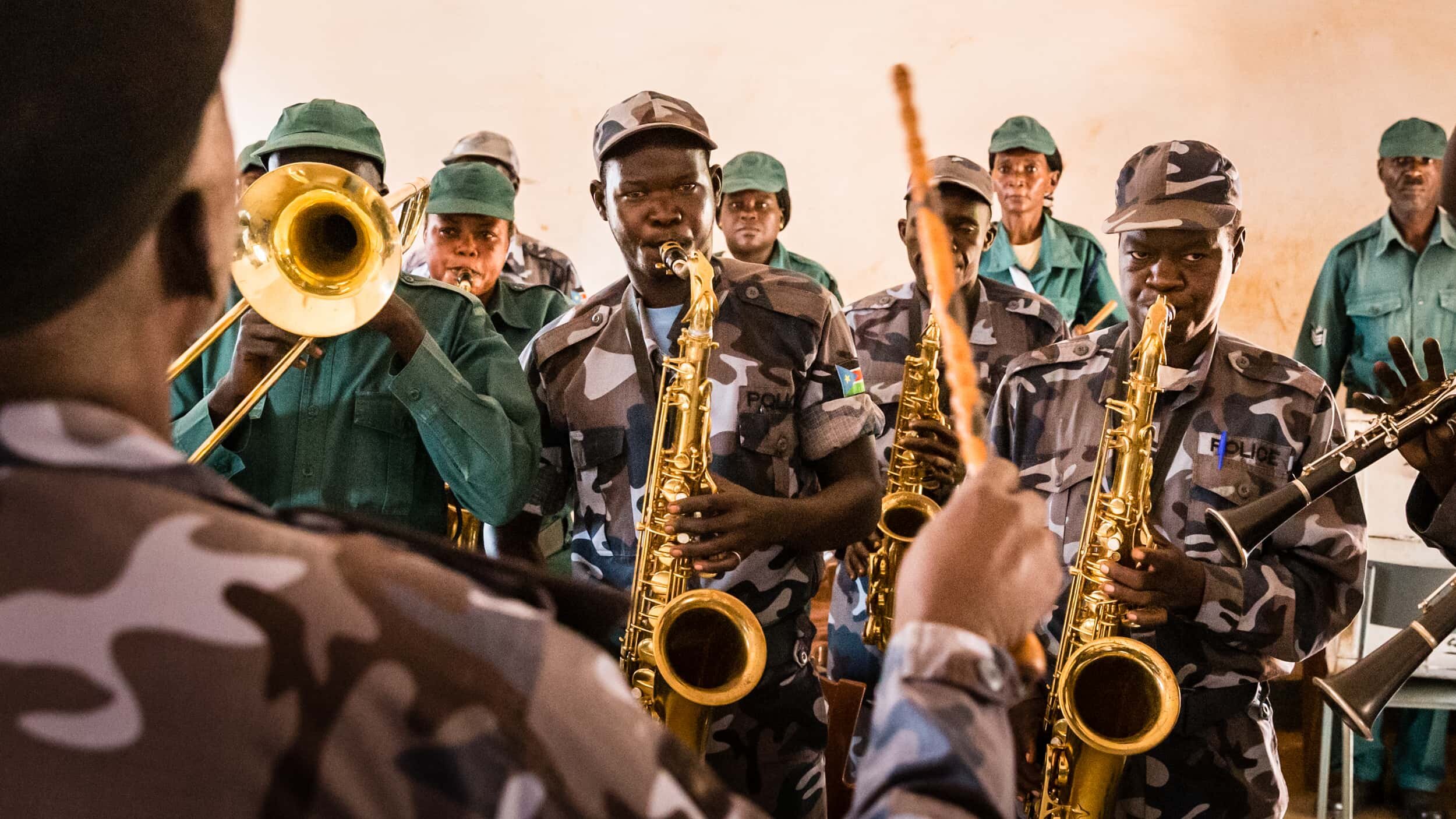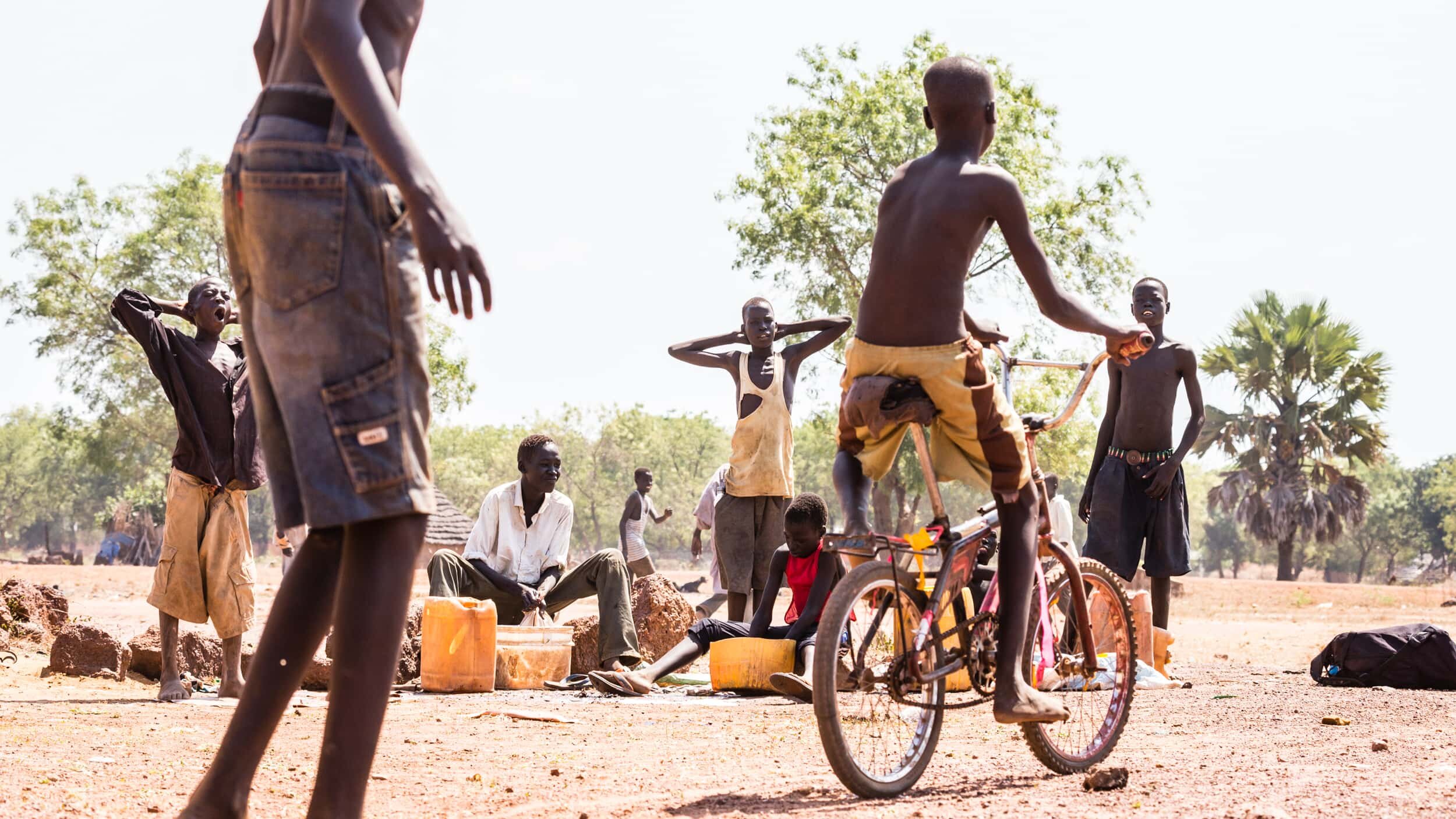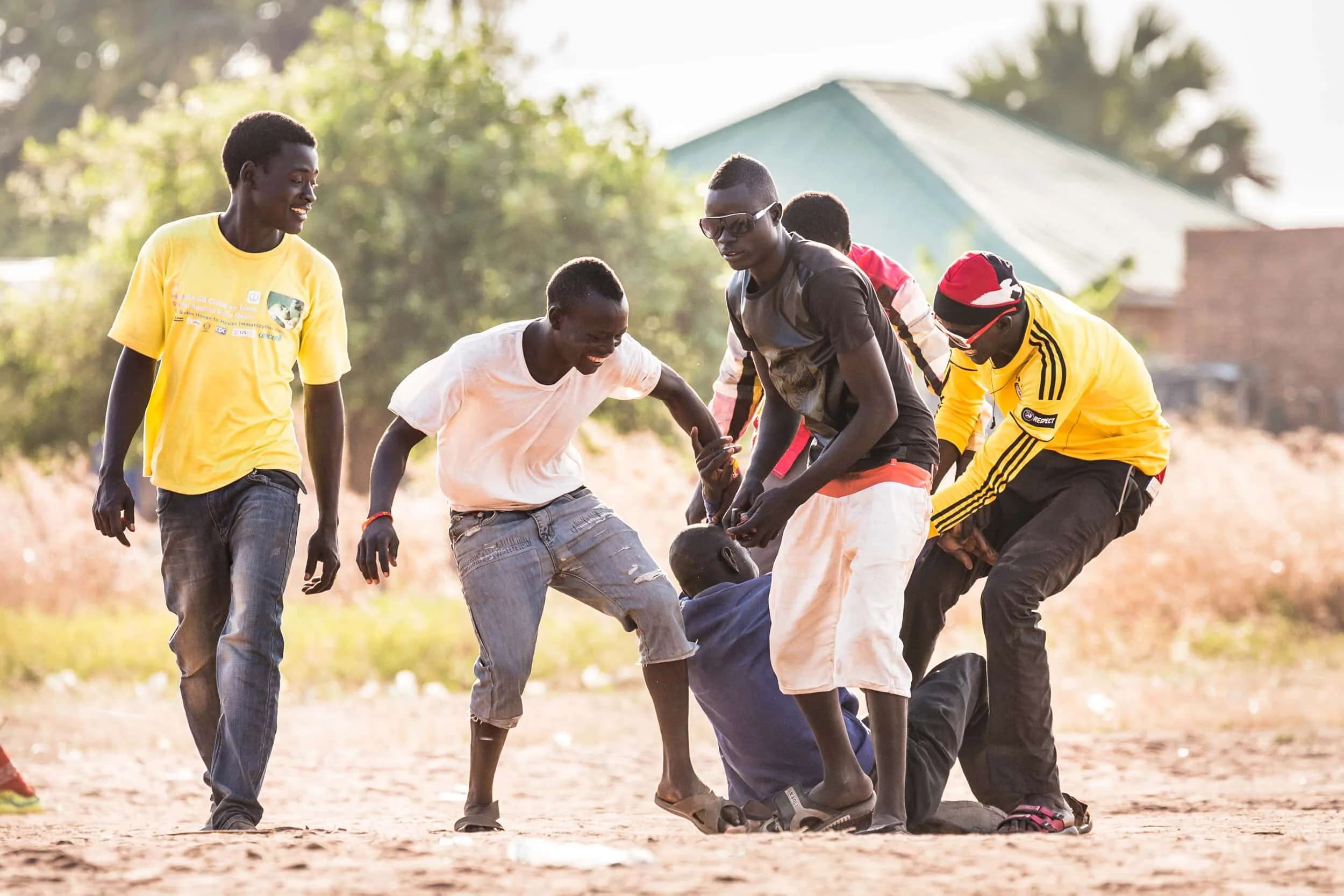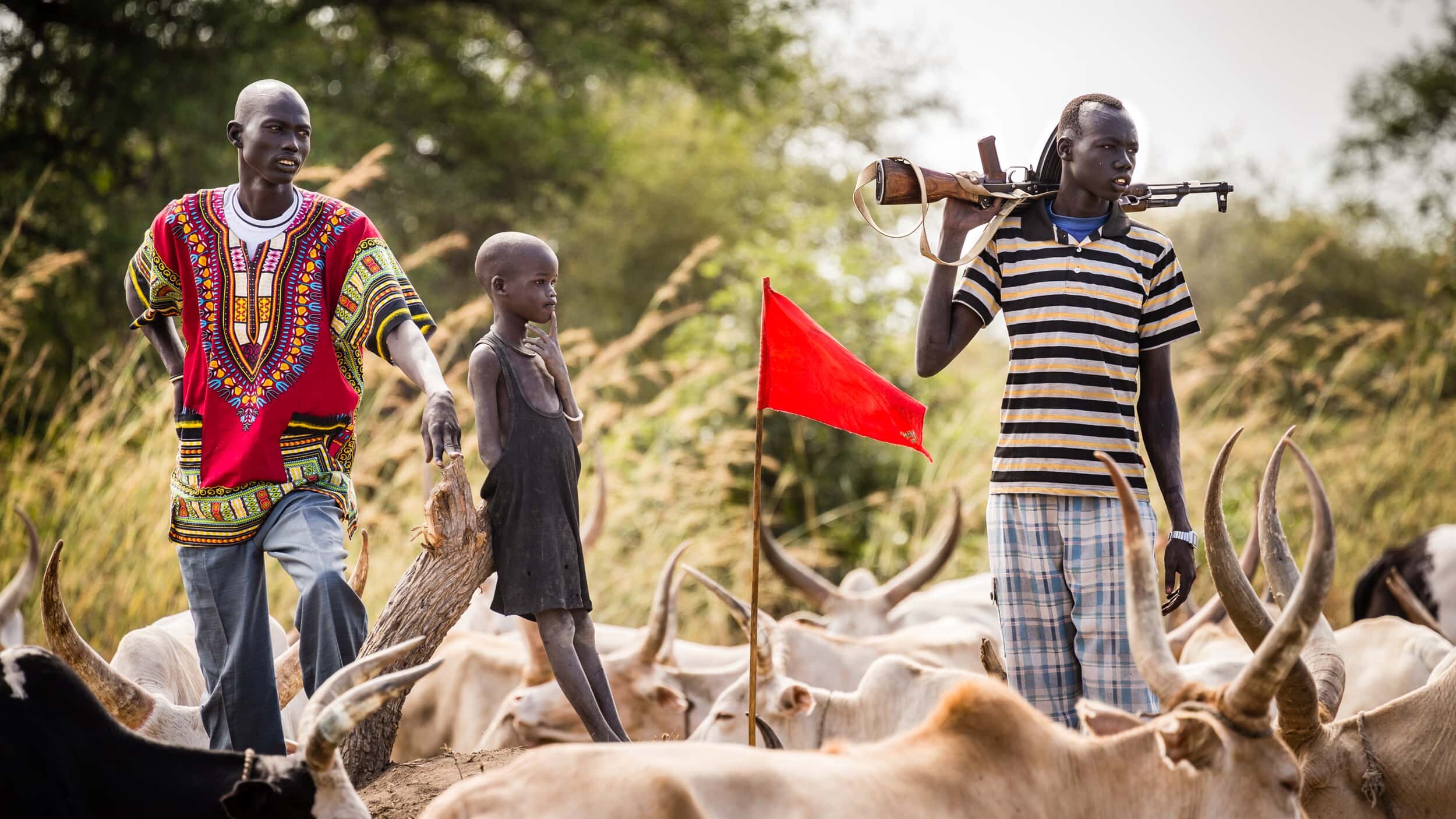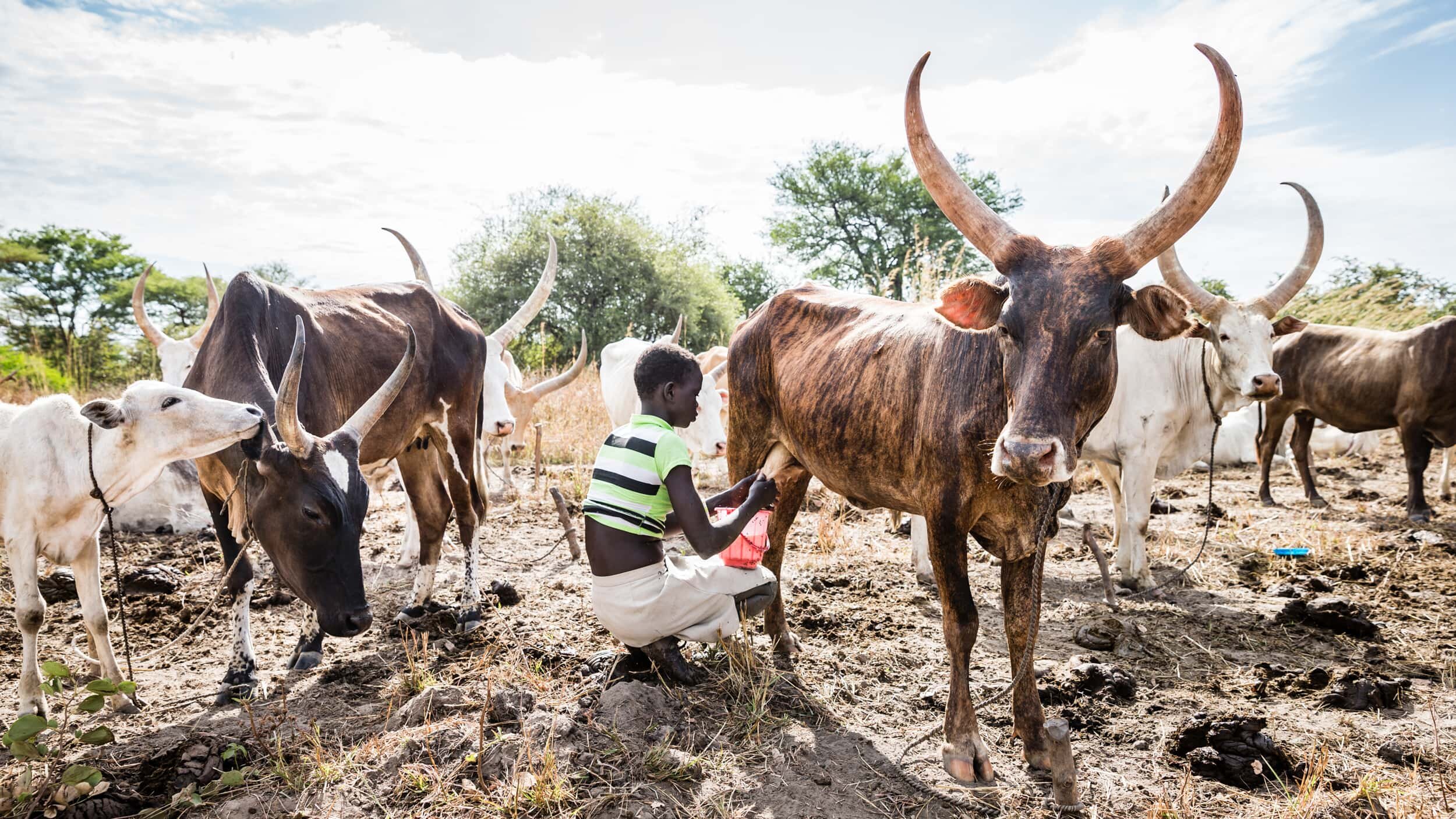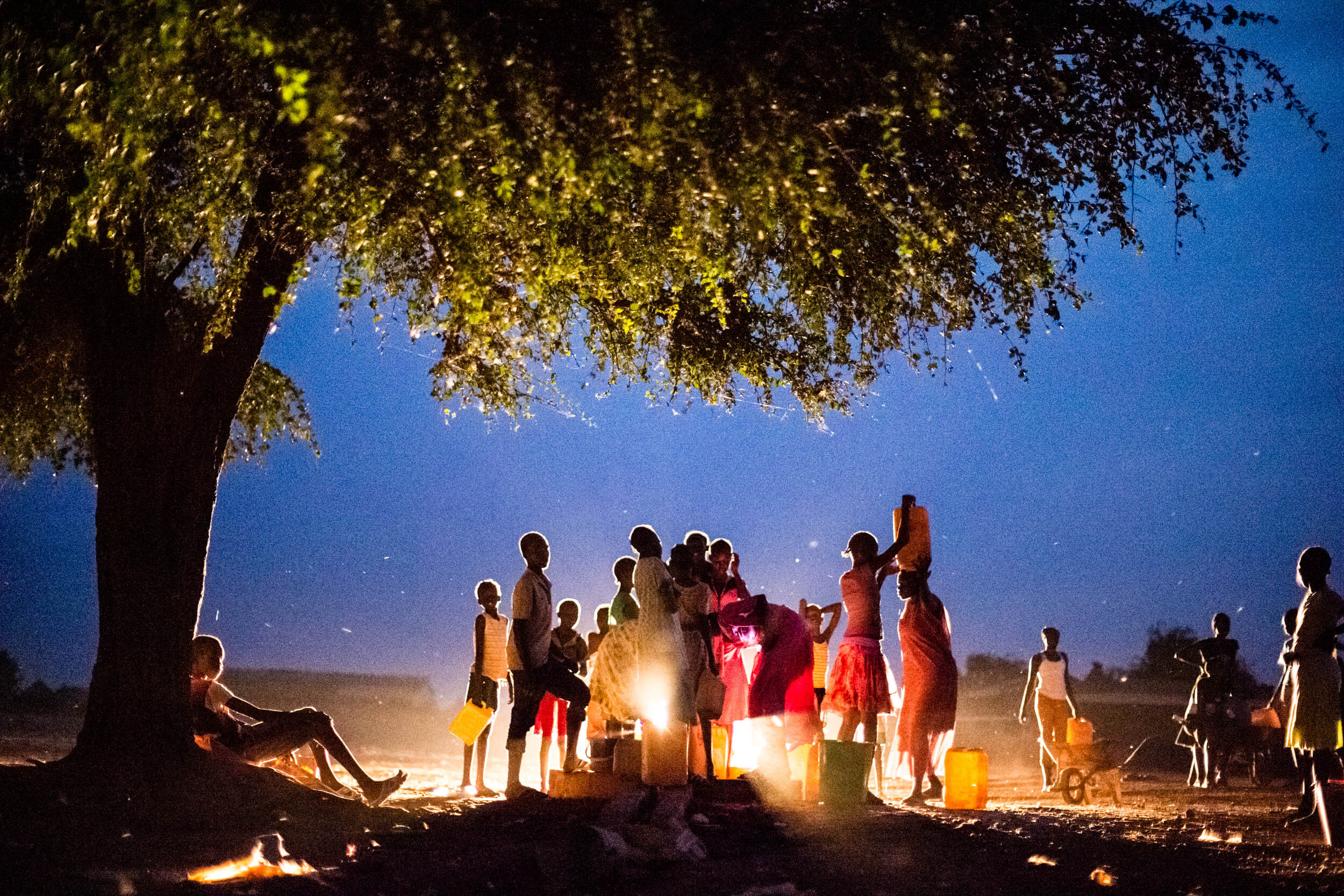
Following independence in 2011, South Sudan officially became the world's youngest nation. However, the country will need to overcome a legacy of decades of violence and cope with complex needs, both long and short-term, if it is to secure a lasting peace.
While the Agreement on the Resolution of the Conflict in the Republic of South Sudan offers a framework for peace and security following the outbreak of conflict in 2013, wide-ranging democratic, governance and security sector reforms are urgently needed.
At a local level many conflicts have historically resulted from disputes over land, cattle, revenge killing, water resources and a lack of economic opportunities, which leads to crime. Violence against women is also widespread both in the home and as a weapon of war.
Commissioned by Saferworld
Saferworld is a UK based NGO operating a series of community security programmes across South Sudan to help prevent conflict. Whilst conflict prevention involves dealing with many complex interlinked issues, one part of Saferworld's approach is to facilitate 'Community Security Working Groups' enabling local people to discuss local safety and security concerns. Through these working groups, stakeholders are encouraged to consider what security is, who it is for and how it is delivered, helping communities to develop more effective solutions to their problems.
These pictures were commissioned by Saferworld for the exhibition 'Communities First', to mark the organisation's 25th anniversary year. Launched in both the UK and European parliaments, the images illustrate community security working groups, highlight issues driving conflict, and give a voice to people whose daily experiences of insecurity are too often marginalised and forgotten.
Community security member and traditional chief, Peter Monylat Deng, raises a concern at the monthly Police Community Relations Committee (PCRC) meeting. Led by Major General Abraham Manyuat, the Police commissioner for Western Bahr el Ghazal (WBEG) state, these meetings allow community leaders to report and discuss local issues affecting security - with the proceedings freely recorded by multiple stakeholders.
Police Training Centre, Wau, Western Bahr el Ghazal (WBEG) state.
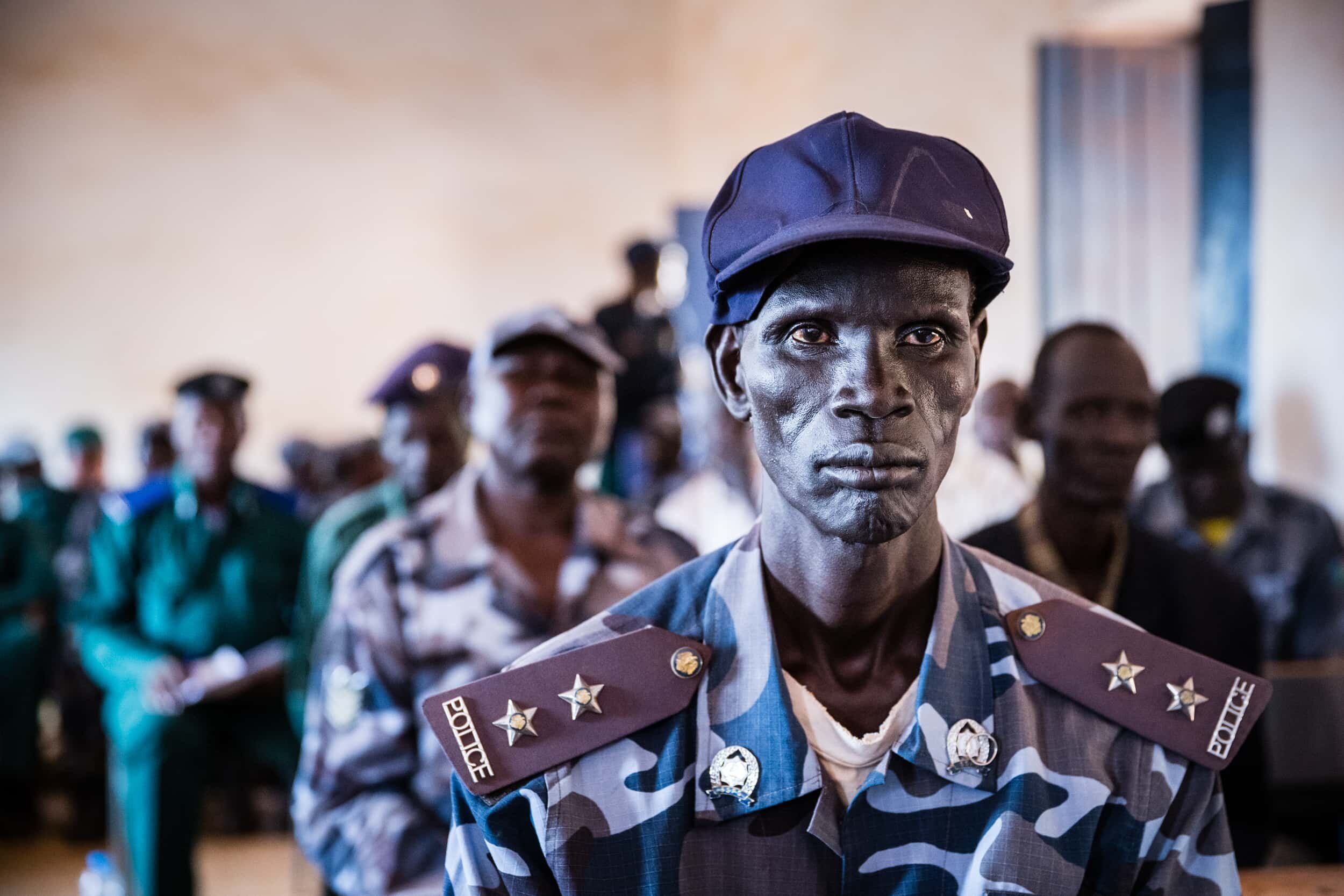
A local police officer listens to the proceedings at the monthly Police Community Relations Committee (PCRC) meeting.
After the meeting the police band play a lively rendition of South Sudan's national anthem. Despite the impressive musical display, the police in Wau face crippling gaps in training and resources. Many officers have not had community policing training, officers sometimes don’t have paper to record crimes, and community members complain they often lack phone credit to make or take community related calls.
Police Training Centre, Wau, Western Bahr el Ghazal (WBEG) state.
Street children gather once a week to wash their clothes at the Don Bosco Catholic Relief Centre, a local charity in Kuajok dit. The children have no fixed address and often sleep in the local football stadium, moving on before dawn to avoid harassment from the authorities. During the day they can often be seen roaming around, usually in groups for safety, carrying their belongings in sacks.
While girls have an inherent value to their family networks because of the ‘bride price’ they command, boys who are orphaned or whose parents are unable to care for them frequently end up living on the streets. An absence of facilities to support the boys leaves them vulnerable to abuse and criminality.
Kuajok dit, Warrap State.
Traditional Judge Chief Pasquale Udo Maktab in his office. Now 85 years old, the Chief has lived in Wau since his birth when the British still ruled. He presides over the fartit once a week, a court for non-Dinka ethnic groups, seeing roughly 10 to 15 cases each time.
“There can be no peace without justice. For the future I am worried. As elders we are trying our best to promote peace, but no one is listening to us anymore.”
In the court, the Chief orders a man to pay a small fine to his wife for repeatedly beating her, with a polite but steely threat of criminal conviction if he continues.
Chief Pasquale Udo Maktab estimates that over 85% of the cases that he sees relate to domestic violence, which is often not seen as a criminal justice issue unless it results in serious injury or death. Across South Sudan customary courts operate alongside statutory courts, often dealing with what are classed as ‘social’ issues like marital disputes, elopement and domestic violence. In reality, however, the remit of traditional courts and their relationship to the formal legal system is often very unclear.
Jebel Kheir, Wau, Western Bahr el Ghazal State.
A 'gang' of young men messing around in a recreational area. Local communities often stereotype gangs – predominately made up of young men with a few female members – as the cause of increased criminality, including rape, theft, prostitution, harassment, and alcohol and drug abuse. But gangs, more often then not, are groups of disenfranchised young people with severely limited opportunities for education and employment who are seeking solace with others in their peer group.
Young people with little hope of work are also at risk from being recruited by militarised groups and turning to crime. Economic development and the education system in South Sudan were severely disrupted during decades of civil war, and the recent outbreak of conflict in 2013. Much of the investment since independence in 2011 has been focused on the capital, Juba.
Below, the The Aweil Jedid gang chose to be photographed on wasteland outside of town to avoid harassment.
Nazareth, Wau, Western Bahr el Ghazal State.
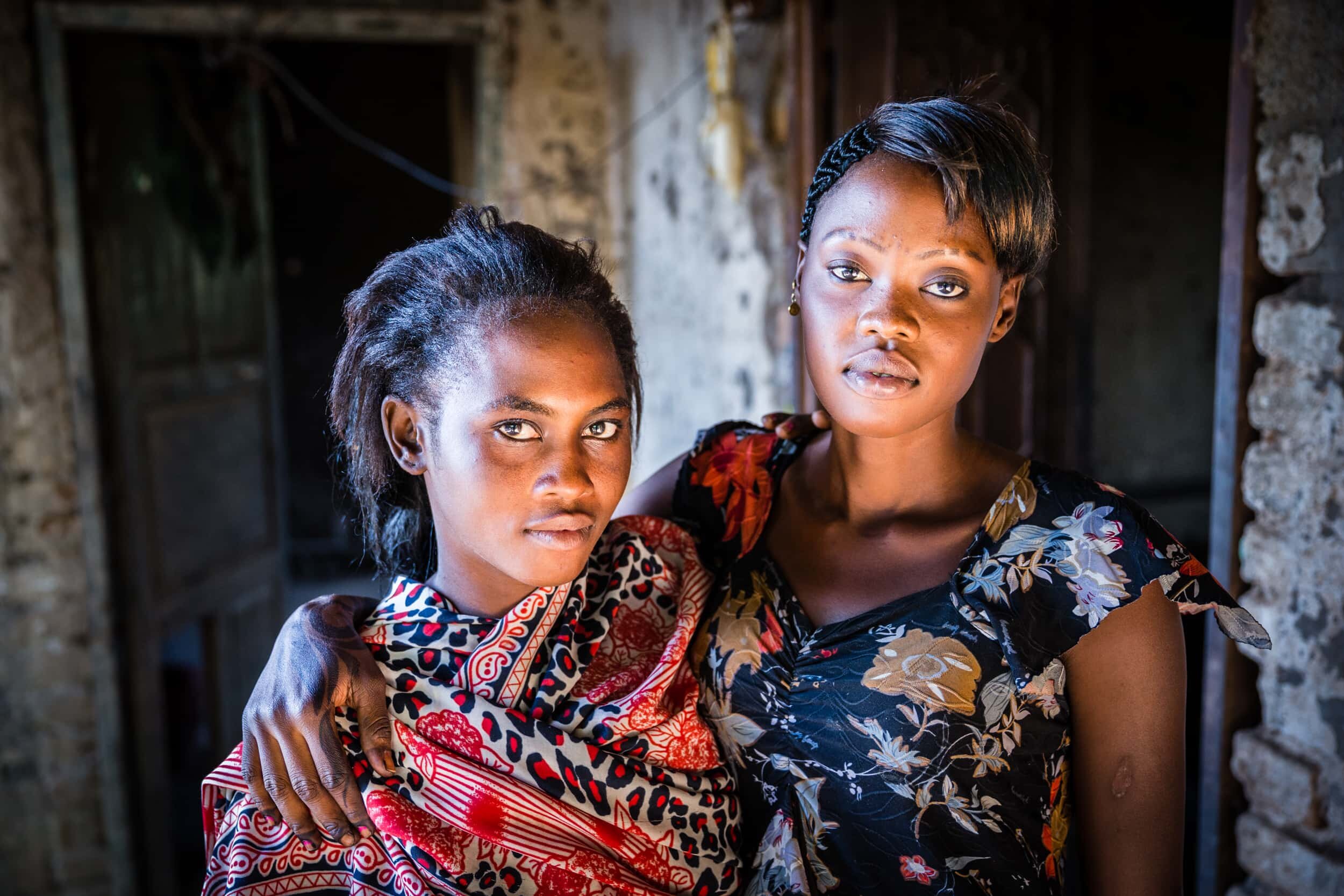
"If we had a chance, we would be in school. Communities need to understand that we are forced to become gang members because of our situation". Nancy, 19, and Regina, 20, are gang members and young mothers.
South Sudanese who returned from Khartoum for the referendum and subsequent independence in 2011 have faced a long journey of reintegration to their native homeland – sometimes after decades away. Atoch Atem Adeny, a community security working group member, returned to Kuajok in 2011 to find few employment opportunities existed. While she stresses that relationships between returnees like her and the host community have now improved, work is still scarce, which is a source of continuing tension. Atoch has started selling the family’s furniture to make ends meet.
Ayak Mou Kuot, also a community security working group member and speaker. The self help group, which engages with the wider community, is made up of returnees, who came back to South Sudan after independence.
Mayen Gumel, Kuajok, Warrap State
A prize bull presented for auction at a traditional cattle market in Janeen Ayii dit at Bar Puot, near Payam. The shape of the horns has been influenced by the process of horn shaving when the bull was younger.
For pastoralist communities across South Sudan, cattle are the primary indicator of wealth and status, and the currency for buying a bride in rural South Sudan. As many as 80 cows can be demanded by a family in exchange for an educated girl for marriage. Some men who are unable to marry because of a shortage of funds are drawn into cattle raiding.
Work on cattle camps starts young, with communities sharing the responsibility for keeping the herd. Men, often armed to protect themselves and their cattle, are responsible for moving the herd to pasture for grazing. During the dry season, conflict increases as cattle keepers are forced to move further afield in search of grassland and water sources, increasing confrontation with other herders.
Lakatoc Cattle Camp, Tonj North, Warrap State
Children are responsible for tethering and milking cattle when they return from pasture and know every animal in their herd by sight. The cattle too seem to know and trust the children and always appear serene in their company.
Below: Members of the Lakatoc cattle camp in Tonj North meet with Chief Akok Thus to discuss community issues. The following day there will be a meeting between all the local Galweng with Chief Buk Geng Buk in Tonj North. The Galweng, which literally means 'cattle protector', are a quasi-organised group of armed men with their origins in Sudan’s second civil war who sit outside the state security structures of South Sudan.
Lakatoc Cattle Camp, Tonj North, Warrap State.
Below: Members of the Lakatoc cattle camp in Tonj North meet with Chief Akok Thus to discuss community issues. The following day there will be a meeting between all the local Galweng with Chief Buk Geng Buk in Tonj North. The Galweng, which literally means 'cattle protector', are a quasi-organised group of armed men with their origins in Sudan’s second civil war who sit outside the state security structures of South Sudan.
Lakatoc Cattle Camp, Tonj North, Warrap State.
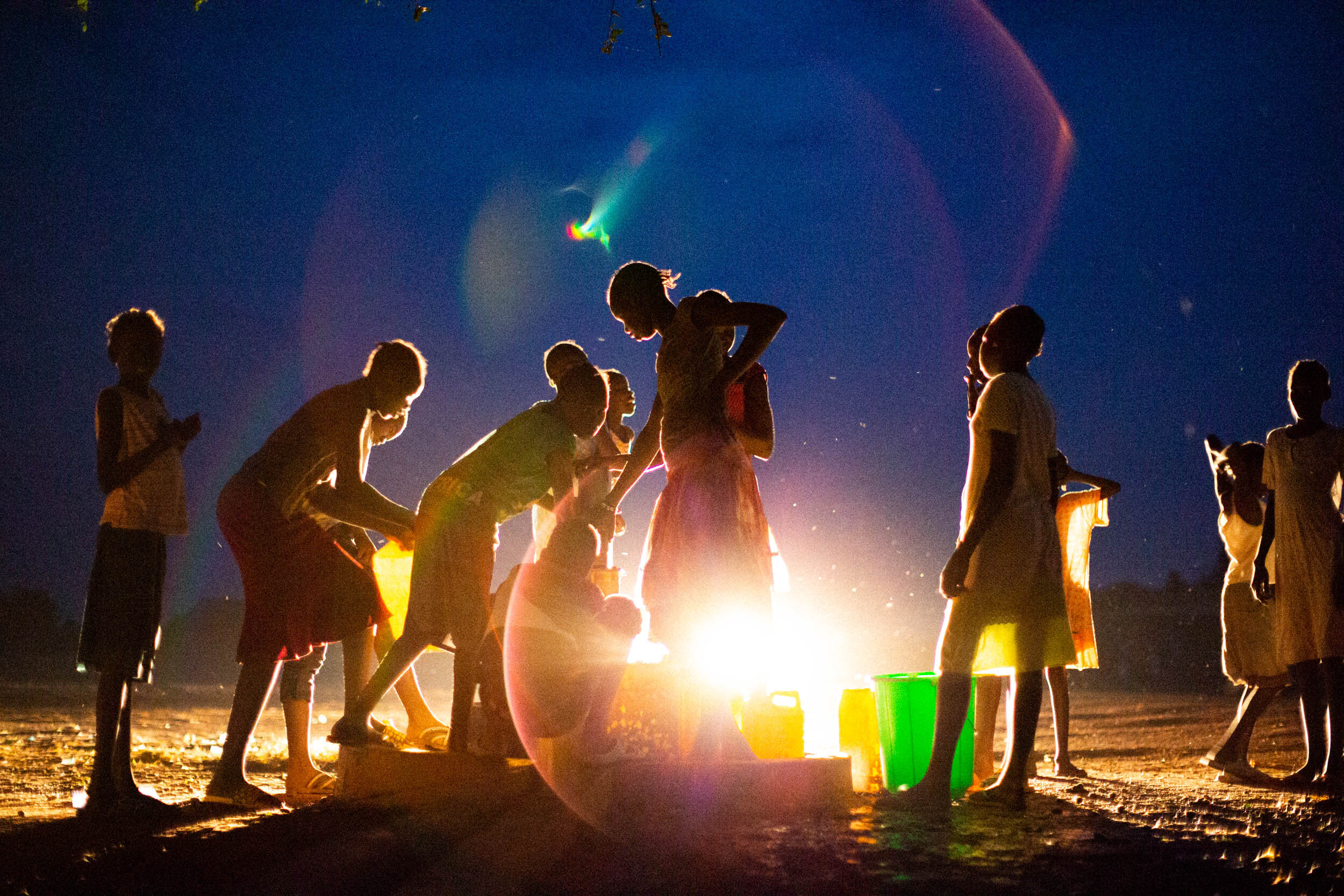
Children collect water at dusk in Kuajok. With few functioning boreholes in Warrap, pressure on the ones that work can be intense. When disagreements occur, they can escalate quickly and violence is not uncommon as families and communities step in to defend their side.
Out of seven boreholes built in the area in 2011, this is the only one that still works. NGOs have been instructed to wait for the new government water system. With new borehole drilling on hold, the new system delayed, and existing water points falling into disrepair, an essential daily task has become a trigger for conflict.
Kuajok dit, Warrap State.
Acknowledgments
Elizabeth Bourne and Marcus Perkins would like to thank each of the Community Security Working Group members and the communities they represent for their assistance with this project.
We would also like to thank the Saferworld staff in South Sudan, particularly Peter Machar, William Leuth, and Anthony Koma for hosting our visit, for their guidance and for keeping us safe.
Saferworld
Saferworld is an independent international organisation working to prevent conflict and build safer communities. They operate in 19 countries and territories across Africa, the Middle East, Asia and Europe, and receive funding from a range of donors including governments, the European Commission, trusts and individuals. The organisation has been working on conflict prevention in South Sudan since 2002, with community security programmes in eight of South Sudan’s ten states.
The exhibition
Saferworld's 25th anniversary exhibition, Communities First, was launched in Westminster and the European Parliament. The pictures have subsequently been exhibited in London (for a second time), Washington, New York, Mexico, Dhaka and Juba.


